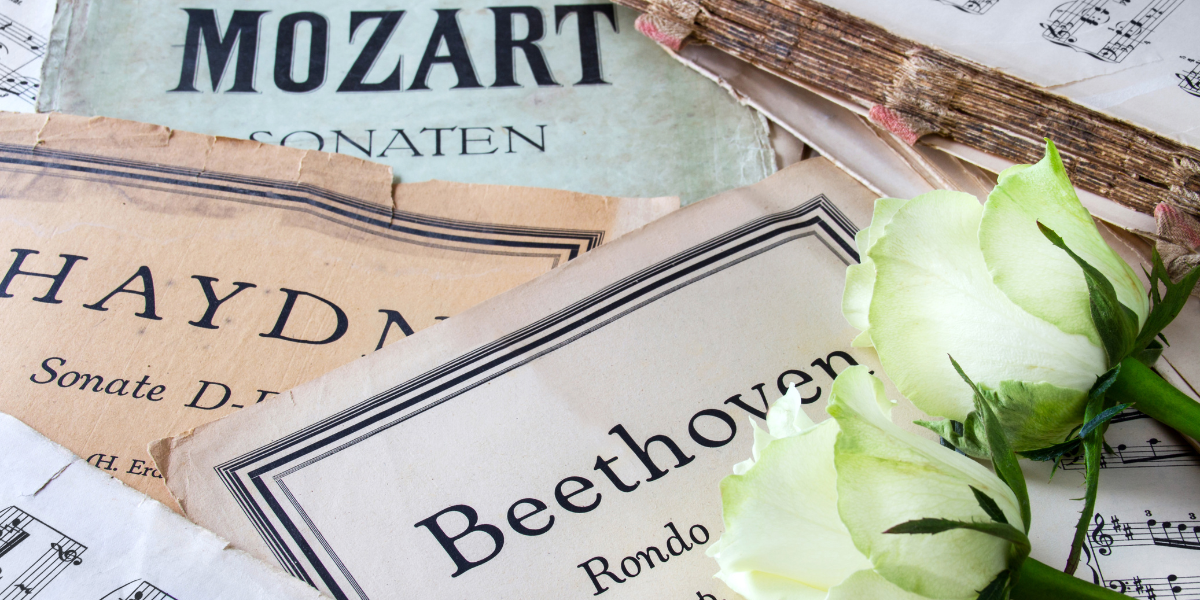Did you know that plants respond to their surroundings in surprising ways? We always think of water, light and the right substrate for our plants but have you ever considered that music might play a role in their growth? Scientists have studied how plants react to different sounds—and the results are fascinating. Let’s explore which types of music can boost plant growth, which might hinder it, and why this can matter for your plants at home.

Classical Music: A Growth Booster for Plants
It might sound surprising, but studies show that plants seem to “prefer” classical music. The gentle, harmonious tones of composers like Mozart and Beethoven appear to stimulate plant growth. Beyond just responding to light and water, plants also react to sound waves. Classical music, especially slower, melodic compositions, has been found to improve nutrient and water absorption in plants. Who would have thought about music having an affect on your plants?
A long-term study by biologist Stefano Mancuso at the University of Florence revealed that plants exposed to classical music over ten years developed larger leaves and were more fruitful. His grapevines not only produced more grapes but also yielded more aromatic wine—a strong case that the right music can positively impact plant growth.

Heavy Metal: Not All Music is Good for Plants
While gentle music may benefit plants, the opposite seems true for heavy metal. Loud, aggressive sounds can actually impede plant growth. Scientists have discovered that overly loud music can damage plant cell walls. Sound waves strong enough to impact plant structure can cause stress, slowing growth or even leading to plant death.
At the University of Missouri, researchers found that certain plants can respond defensively to loud, unpleasant noises. For instance, cress produces defensive chemicals in response to sounds resembling munching caterpillars. This shows that plants use sound waves actively as information to enhance survival strategies. So for those who like to listen to their heavy metal and you love your plants, maybe switch to headphones. 😉

Sound Waves and Plants: How Music Impacts Cell Structure
Why do plants respond to music at all? The answer lies in sound waves. Plants have cell membranes that respond to sound. Gentle music can stimulate cell walls, activating the plant’s metabolism. When sound waves fall within a certain range, plant pores open up, allowing easier absorption of water and nutrients.
On the other hand, loud or chaotic music causes cell walls to harden, making it difficult for plants to absorb nutrients and slowing growth. Plants need more than just light and water; a calm, harmonious environment can also help them thrive.
Practical Tips: Using Music in Plant Care
Wondering how to incorporate music into plant care? The good news: you don’t need fancy sound systems or high-tech setups. A simple playlist with classical music or soft, natural sounds can make a difference. Just keep the volume low. Studies show plants are sensitive to excessive noise, so room volume or lower is ideal.
For plants like grape vines or tomatoes, music can make a noticeable difference. Ornamental plants, however, haven’t shown significant changes with music, but it can’t hurt to give them a musical break now and then! So turn up the music on your plant care days!
Talking to Your Plants: Why Your Voice Can Help
If you’re unsure about music, try talking to your plants. Your voice has a similar positive effect! Speaking produces sound waves that impact plant cell walls like music does. Plus, when you talk, you release carbon dioxide (CO₂), which plants need for photosynthesis. So yes, we can say with certainty: you are not crazy for talking to your plants.

Special Playlists for Plants
If you’re looking for something unique, specialised playlists for plants are available, like “Music for Plants” or “Mother Earth’s Plantasia.” These playlists mix soothing melodies with natural sounds, creating an ideal atmosphere for plants to thrive.
Conclusion: Music as a Green Thumb for Your Home
Music can do more than lift our mood—it can also influence plant growth. Classical music and gentle sounds can encourage better plant development, while loud, chaotic music can be harmful. With a bit of experimentation, you can create the perfect musical environment for your green friends.
Sources:
- Universität Florenz – Langzeitstudie zur Wirkung von Musik auf Pflanzen
- Mancuso, S. – Studien zu Reben und klassischer Musik
- Universität Missouri – Forschung zu Kresse und Schallwellen
- SWR – Experteninterview mit Julia Kehr zur Wirkung von Musik auf Pflanzen
- Galaxus – Mythencheck: Pflanzen und Musik
- Cultivation Tips : Inspiration , Plant Care
 Deutsch
Deutsch  Français
Français  Español
Español 
